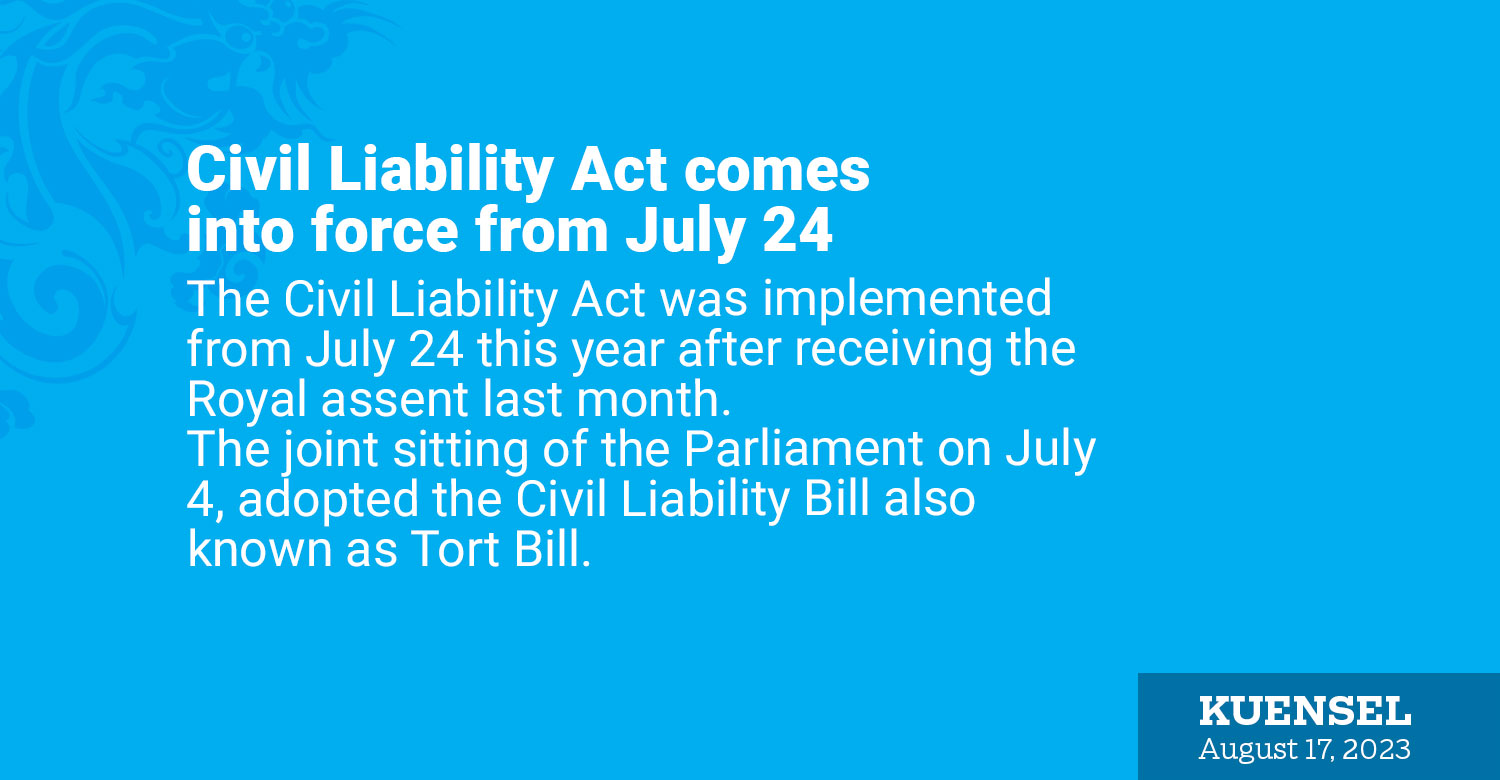…Royal judicial service council will lead the Act
Dechen Dolkar
The Civil Liability Act was implemented from July 24 this year after receiving the Royal assent last month.
The joint sitting of the Parliament on July 4, adopted the Civil Liability Bill also known as Tort Bill.
This Act will apply to claims for compensation, arising out of harm caused to a person or property by another person breaching a duty imposed by this Act or by any other laws.
According to Section 146 of the Civil Liability Act 2023, within one year from the date of commencement of this Act, the Royal Judicial Service Council will make rules and regulations appropriate for the purposes of giving full effect to this Act which will be consistent herewith.
The Royal Judicial Service Council will be the leading agency for the implementation of the Act. Officials said that the Legislative Committee of the National Council discussed extensively who would be the leading agency of the Act.
“The Royal Judicial Service Council is the least conflict of interest to lead the Act. Whereas, Office of Attorney General and Police will have a conflict of interest where they have to defend the case,” an official said.
The official said that the Act is also known as the law of negligence and should compensate the injured parties.
The Act seeks to prevent instances of negligent deaths and injuries while ensuring fair compensation for losses and damages incurred by individuals and public property due to civil wrongdoings.
However, the officials said that if the causes are from natural problem, it is not liable to pay compensation.
So what?
As it has concerned many agencies, in particular doctors in the hospitals, people may file a case against them for the death of patients.
The official said that the Act will be enforced only if there is negligence while providing services and civic wrongdoings
“It requires evidence and there are checks and balances to validate the incidents,” an official said.
Previously, there were incidents where a woman died due to the collapse of a streetlight pole at Chanjiji; a young child lost his life due to accidents involving hume pipes at Hejo; and a couple lost their lives due to a Kuri-Gongri bridge collapse, which needs to be compensated according to Tort Act.
An official also said that this law is not a law of limitations. Even after 20 to 30 years victims can file a case, which should have corroborating evidence.
Compensation
The maximum amount of compensation to a claimant in respect of the death of a person will be fifteen years minimum wage.
The victim will be entitled to the funeral expenses for forty-nine days for seven people and reasonable medical expenses of the victim in relation to the injury that resulted in the death.
The maximum amount of compensation for non-economic loss will be ten years minimum wage.


